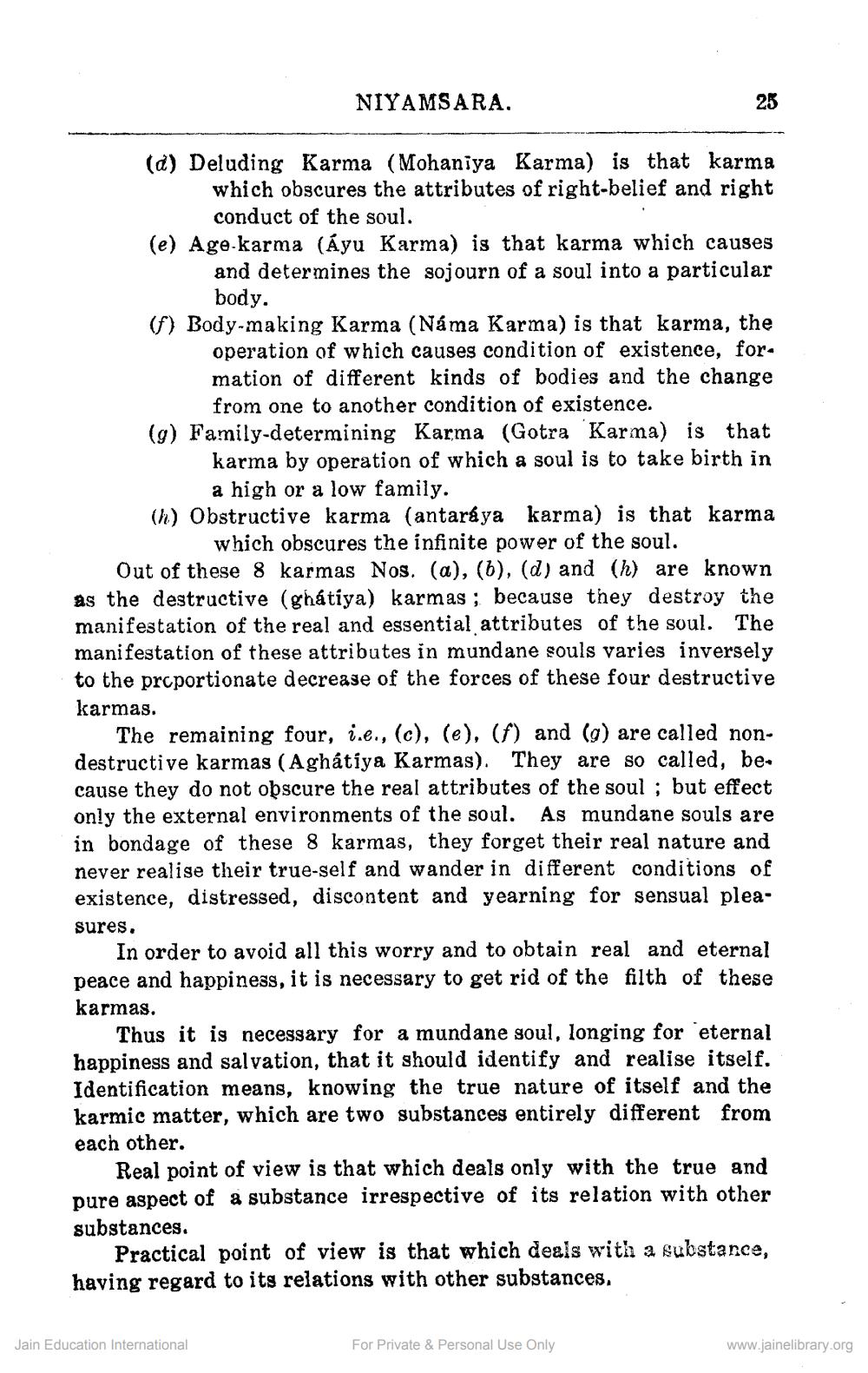________________
NIYAMSARA.
(d) Deluding Karma (Mohaniya Karma) is that karma
which obscures the attributes of right-belief and right
conduct of the soul. (e) Age-karma (áyu Karma) is that karma which causes
and determines the sojourn of a soul into a particular
body. (f) Body-making Karma (Náma Karma) is that karma, the
operation of which causes condition of existence, formation of different kinds of bodies and the change
from one to another condition of existence. (9) Family-determining Karma (Gotra Karma) is that
karma by operation of which a soul is to take birth in
a high or a low family. (h) Obstructive karma (antaráya karma) is that karma
which obscures the infinite power of the soul. Out of these 8 karmas Nos. (a), (6), (d) and (h) are known as the destructive (ghátiya) karmas ; because they destroy the manifestation of the real and essential attributes of the soul. The manifestation of these attributes in mundane souls varies inversely to the proportionate decrease of the forces of these four destructive karmas.
The remaining four, i.e., (c), (e), (f) and (g) are called nondestructive karmas (Aghátiya Karmas). They are so called, be. cause they do not obscure the real attributes of the soul ; but effect only the external environments of the soul. As mundane souls are in bondage of these 8 karmas, they forget their real nature and never realise their true-self and wander in different conditions of existence, distressed, discontent and yearning for sensual pleasures.
In order to avoid all this worry and to obtain real and eternal peace and happiness, it is necessary to get rid of the filth of these karmas.
Thus it is necessary for a mundane soul, longing for eternal happiness and salvation, that it should identify and realise itself. Identification means, knowing the true nature of itself and the karmic matter, which are two substances entirely different from each other.
Real point of view is that which deals only with the true and pure aspect of a substance irrespective of its relation with other substances.
Practical point of view is that which deals with a substance, having regard to its relations with other substances.
Jain Education International
For Private & Personal Use Only
www.jainelibrary.org




